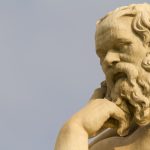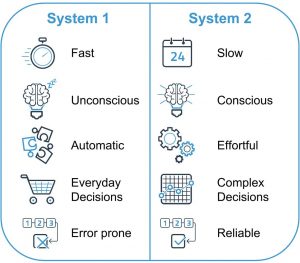 Noticing is about being present in the current moment, or as Ram Dass put it in his famous book, “Be Here Now“, our growth edge is simply learning to BE HERE NOW. That requires BEING rather than doing, being HERE rather than lost in our thoughts and NOW, meaning this moment, not later today or on tomorrow’s calendar but this moment. I have been working on being here now for many years, but I am still very much in the world of DOING WHATEVER WHENEVER. However, I have learned a few things on my journey that you may find helpful.
Noticing is about being present in the current moment, or as Ram Dass put it in his famous book, “Be Here Now“, our growth edge is simply learning to BE HERE NOW. That requires BEING rather than doing, being HERE rather than lost in our thoughts and NOW, meaning this moment, not later today or on tomorrow’s calendar but this moment. I have been working on being here now for many years, but I am still very much in the world of DOING WHATEVER WHENEVER. However, I have learned a few things on my journey that you may find helpful.
This post will cover two aspects of “noticing”: 1) various forms noticing and 2) how to practice noticing.
Forms of Noticing
Noticing is perhaps the single most important skill you can develop because it appears so simple yet covers so much ground and can be so difficult to master. Noticing takes many forms and I address six of those forms in this post. Noticing is essential in meditation, in relationships and in so many aspects of daily life. So let’s start off by examining one of the masters of at least one form of noticing, Sherlock Holmes.
Holmes, a famous real British detective distinguished himself by his uncanny ability to observe (notice) the smallest of details. The short video below describes how Holmes observed so clearly. One point it makes is that Holmes could focus on observing others, but wasn’t very good at observing his own inner patterns. Most depictions of him show his living quarters to be an absolute shambles. This is important because it points out the need for balance. Holmes was obsessive about noticing the world around him, but clearly in deep conflict about looking inward.
Noticing is a complex topic. The word itself can be used as a verb or a noun; but within this post, I will restrict my inquiry to the verb form (“to notice”) which is defined as :
- To become aware of (e.g. “he noticed the youths behaving suspiciously”).
- treat (someone) with some degree of attention or recognition (e.g. “it was only last year that the singer really began to be noticed”).
- ARCHAIC: remark upon (e.g. “she looked so much better that Sir Charles noticed it to Lady Harriet”)
Similar terms: observe, perceive, note, see, become aware of, discern, detect, spot, distinguish, catch sight of, make out, take notice of, mark, remark, pay attention to, heed and espy (my favorite!).
There is another term that is quite similar to how I use “noticing” in this post: Mindfulness which the same dictionary defines as:
- The quality or state of being conscious or aware of something. “their mindfulness of the wider cinematic tradition”
- A mental state achieved by focusing one’s awareness on the present moment, while calmly acknowledging and accepting one’s feelings, thoughts, and bodily sensations, used as a therapeutic technique.
The second definition is also a description of noticing as I use it in this post.
- Body Awareness – noticing what is happening inside your body;
- Intellectual Awareness – noticing the activity in your mind;
- Emotional Awareness – developing awareness of and the ability to express your feelings;
- Spiritual Awareness – examining your relationship with your higher self;
- Awareness of the World- becoming aware of what is going on around you;
- Awareness of the Cosmos – exploring and learning about what is happening to the Universe we live in.
In my men’s circles, we will often do a “PIES” check-in which means that we share how our Physical (body) self is doing, how we are doing Intellectually, Emotionally and Spiritually.
Let’s explore each form of awareness a bit further.
Body Awareness
What is the state of your physical body? How healthy or unhealthy is your body? Are you in pain or free of pain? Are your body’s internal systems working well or are some systems showing signs of distress?
One form of meditation is called a “Body Scan” and involves starting with an extremity like your left foot. Wiggle your toes. Can you raise and lower each toe separately? How is the arch of your foot? Compress your foot and notice how that feels. Stretch your foot and notice how that feels. Now move up to your ankles. The body scan progressively examines every part of your body and helps you notice how well or poorly each part of your body is doing.
Here is a 15 minute body scan you can listen to. It will give you a good idea of how a body scan works.
A body scan can help you notice how the various parts of your body are doing, but for most of us, it cannot tell us much about the insides of our body. As I write this (March, 2020), the Covid-19 pandemic is attacking the immune systems of millions of people around the world. It can inhabit our bodies for as long as two or three weeks without any apparent symptoms. Because this virus is “novel”(new), our bodies have no immune defenses from it, and consequently every person on the planet is a potential victim or carrier of it.
Even though we cannot notice the physical impacts of this virus until we start feeling symptoms, we can still notice the questions we have about the virus, the anxiety we may feel about its possible impacts and even our awareness of our own mortality.
Intellectual Awareness
What is the state of your mind? Are your thoughts clear or jumbled? Can you stay with a particular thought or do you jump around all over the place? Is your mind calm and grounded or filled with conflicting thoughts? Here are some common patterns of Intellectual Awareness:
- Brain chatter;
- Conflicting beliefs;
- Loss of Memory;
- Behavior patterns.
Brain Chatter
 Rene’ Descartes, the famous French Philosopher proposed that “I think, therefore I am“. I like to twist this around and suggest, “I am, therefore I think”. We all have an ego that needs to feel important and expresses itself through thought and action. In meditation, the ego appears in a form often called “Monkey Mind“. People with some form of Attention Deficit Disorder (ADD) often find their minds wandering all over the place. Sometimes this can be quite interesting and even enjoyable; however if you are trying to concentrate on something, monkey mind can be quite annoying.
Rene’ Descartes, the famous French Philosopher proposed that “I think, therefore I am“. I like to twist this around and suggest, “I am, therefore I think”. We all have an ego that needs to feel important and expresses itself through thought and action. In meditation, the ego appears in a form often called “Monkey Mind“. People with some form of Attention Deficit Disorder (ADD) often find their minds wandering all over the place. Sometimes this can be quite interesting and even enjoyable; however if you are trying to concentrate on something, monkey mind can be quite annoying.
Brain chatter happens to everyone. It is not possible to completely stop our minds simply by trying to. Instead, the most useful practice I have found is to simply notice the banana peels left behind by the monkeys and make a choice: chase the monkeys or return to my breath.
Conflicting Beliefs
We all have beliefs. Some beliefs are well grounded in scientific fact while others are based on messages and teachings we took on at various points in our lives. People who strongly hold one set of beliefs may wind up in conflict with people who hold opposing beliefs. We see this happening all around us every day. Conflicts in beliefs between people can easily arise over differences in religious, political or cultural beliefs, to name just a few..
- ISIS holds beliefs that justified mass execution of thousands of people, a belief that most people hold abhorrent.
- Republicans and Democrats in America don’t even heed the same warnings about the need for social distancing to fight the Covid-19 pandemic.
- Many conservatives believe that immigrants harm our country while most progressives believe the exact opposite.
- Most people know that our climate is changing but disagree about whether it is caused by humans.
All of these are examples of belief conflicts between people; but what happens when the conflict is within your own mind?
A common source of mental activity worth noticing comes from the tensions you can hold between your own conflicting beliefs. This is known as “Cognitive Dissonance” and examples abound:
- Cigarette Smoking: you know that it is bad for you, but you enjoy it and believe that you cannot quit.
- Exercise: You may love to eat but hate to exercise.
- Eating Meat: You love a good steak but feel guilty about the environmental impact of being a carnivore.
 The source of these conflict can be traced to beliefs that you hold that don’t seem to be reconcilable. Sometimes the conflicting beliefs are obvious and easy to spot. You may be entirely conscious of the beliefs you hold about cigarettes, exercise or eating. Most of your beliefs, however, are buried in your subconscious.
The source of these conflict can be traced to beliefs that you hold that don’t seem to be reconcilable. Sometimes the conflicting beliefs are obvious and easy to spot. You may be entirely conscious of the beliefs you hold about cigarettes, exercise or eating. Most of your beliefs, however, are buried in your subconscious.
 There are many reasons why we may not be aware of our hidden beliefs. Some people simply don’t want to look into the mirror of who they are. Donald Trump, arguably the most dangerous and incompetent President the United States has ever elected is an excellent example. He has been diagnosed by many psychiatrists and psychologists as being narcissistic, delusional and paranoid, and is totally unable to take any responsibility for his own words and behaviors. He is unwilling and probably unable to examine his own life. As a consequence, Trump is often unable to even acknowledge his own words, moments after he has spoken them. Sadly, Trump is unable to benefit from the wisdom of Socrates who many years ago said, “The unexamined life is not worth living.”
There are many reasons why we may not be aware of our hidden beliefs. Some people simply don’t want to look into the mirror of who they are. Donald Trump, arguably the most dangerous and incompetent President the United States has ever elected is an excellent example. He has been diagnosed by many psychiatrists and psychologists as being narcissistic, delusional and paranoid, and is totally unable to take any responsibility for his own words and behaviors. He is unwilling and probably unable to examine his own life. As a consequence, Trump is often unable to even acknowledge his own words, moments after he has spoken them. Sadly, Trump is unable to benefit from the wisdom of Socrates who many years ago said, “The unexamined life is not worth living.”
Examining your beliefs can be dark and scary work. You will see parts of yourself that you won’t like or that absolutely terrify you. And here is the paradox. You may not want to see these parts of yourself because you may believe that they are bad or evil. But that is not a fact. It is simply a belief.
So if you want to look at your belief systems, learn to hold them lightly. There was a time in your life when you may have believed in Santa Claus, but as you grow up, you outgrew that belief. As a young adult, you may have seen all of the injustices in the world and decided to slay some of those dragons. As you grew up, you probably learned the limitations of your own dragon-slaying skills and energy. So start by recognizing that:
- You weren’t born with any beliefs. Everything you believe you learned from someone.
- Beliefs change as you acquire life experience. Most truly wise people have learned that worldly beliefs are not worth gripping tightly. Instead, they have learned to hold them lightly and examine themselves dispassionately.
- Beliefs are simply thoughts that can be rewired. They can, in fact, be released entirely with appropriate coaching.
Emotional Awareness
When I was a child, my heroes were men like John Wayne and George Peppard (Remember the A-Team?).From them learned that men are macho. We go to battle, we don’t complain about our wounds. We don’t talk about feelings because men don’t show feelings. We don’t show weakness or vulnerability because these simply aren’t manly. Sadly, as a boy, my father taught me that men don’t cry. He never demonstrated gentleness or tenderness, but he sure knew how to turn on the rage machine. One day when he was particularly pissed off, he tossed my record player to the ground from two stories up.
One of his particularly strange teachings was, “Never trust anybody, not even your own father.” He would often illustrate this story with some parable or sick joke; but I think he actually believed this. Tragically, his judgmental beliefs of others pushed everyone in his life away and he died of terminal loneliness.
Some of the other beliefs that men were taught are:
- Men don’t show fear or sadness
- If you are vulnerable, people will think you are weak
- Women are inferior to men
- Men talk about sports, cars and sexual conquests. We do not talk about feelings.
Tragically, way too many men still carry these beliefs. Others, who have realized the fallacy of these beliefs have instead taken on beliefs about their own limitations such as:
- I am not good enough
- I am not lovable
- I don’t deserve to exist
Sadly, these toxic, self-limiting beliefs are not limited to men. They have spread throughout our culture but live, in most cases, beneath our levels of awareness. The impact of these beliefs has had an additional toll on men. Because we have been taught not to share (or even explore) our feelings, many of us have lost the ability to even know what we are feeling. We know anger pretty well, and we can be happy when our kid (or favorite sports team) scores a point or six; however, our emotional maturity has atrophied to the point that we feel emotional turmoil within us but don’ t have the tools or support systems to deal with this turmoil effectively. So we turn to alcohol, drugs, porn and even violence to numb the inner chaos.
Emotional turmoil shows up as depression and loneliness, a malady more deadly than cigarette smoking. Fortunately, the cultural climate today is becoming more supportive for men who want to become more emotionally mature. The first step is developing emotional intelligence. This is such a rich topic that it deserves its own video.
Defenses
One especially important aspect of Emotional Intelligence is awareness of our own behaviors, and more specifically, awareness of when we are being defensive. There are many ways in which defensive behavior can show up. Two of the most common are denial, and projection. Denial is pretty obvious. You say to your partner, “I think you are being defensive,” and she replies, “No I am not!” Her answer alone is proof that she is being defensive! Projection, on the other hand, is much more tricky and is more closely connected with beliefs and shadows.
Projection happens when someone else’s behavior reminds us of a part of ourselves that we have disowned. This reminder happens at an unconscious level, so we are typically not aware of it. Instead, we believe that the other person is the manifestation of the part of us that we disown. Here’s an example.
Many years ago, I was leading a training on how to create and sit in a men’s circle. One of my assistants in that training said to me before it started that he deeply disliked another of the participants. I pointed out to him that this meant he may have a charge that needed clearing. He responded, “I hear that intellectually, but I still believe he is an ass hole.”
This was coming from a man who had many years of experience and was well trained in the concepts of projection, but when it came to this particular person, he really believed that the guy was a jerk. And you know what, the guy was a bit of a jerk. I could see what he was talking about. The key difference was that my friend had a visceral emotional reaction to the other fellow. We call that having a charge or being triggered.
That evening, my friend did a “Clearing” with the other fellow. This is a process where he identified the data, judgments and feelings he had about this person and realized that he too had behaved that way when he was younger and was deeply embarrassed by his behavior as a youth. He had suppressed that memory until the other fellow reminded him of that part of himself that he had buried in shadow.
If you are triggered by someone, it is probably because they remind you of some disowned part of yourself. If you can notice this happening, you are demonstrating an important aspect of emotional intelligence.
Spiritual Awareness
Spirituality is not religion. Most religions are like streams that lead to the ocean. They can take you to the ocean, but they are not the same as the ocean. Spirituality can take many forms. For some, spirituality is akin to nature. Many gardeners find deep spiritual solace tending to their gardens. Others find spirituality in contemplation and meditation. Still others can find a spiritual connection in chanting and dancing. All of these paths, however, skirt a rather profound question: Is there some sort of higher power or is that entirely within each of us?
I have no answers to this question. I raise it only to point out that it tends to be asked by people throughout the world and throughout time, and that many people so strongly believe that they know the answers to these questions that we have burned people at the stake and even fought wars over them. So it is pretty clear that there can be a clash of beliefs around questions involving spirituality. Hence, this is a topic well worth noticing.
To make matters even more interesting, we are now (March, 2020) living in a proverbial foxhole, sheltering in place while we hunker down and ride out the Covid-19 storm. Remember the old proverb about “No atheists in a foxhole“?
How about you? Do you believe in some sort of higher power… or not? Do you have judgments about your own beliefs?
Noticing through the lens of spiritual beliefs can be tricky. Many of us were raised within a specific religious dogma that we later turned our backs on. This can become a source of conflicting beliefs if remnants of the original belief still persist within us.
I do not espouse or even accept any religious dogma. I do, however, believe in the power of compassionate curiosity. By holding every person I meet with compassionate curiosity, I find that I can see them as imperfect but beautiful human beings worthy of respect and love.
There is one other practice that I think is very important that falls under the heading of Spiritual Awareness and it does have to do with beliefs.
What do you value?
I ask this question because if you don’t know what you value, you may find making clear choices about how you live your life much more difficult.
Twice in my life, I have taken trainings that included this simple exercise. Take 10 index cards and write on them what you value most. One person, place or thing per card. This may take some thought and introspection (i.e. noticing) and it is best to do this with other people.
When everyone has completed identifying the things they value most, start a series of rounds. In each round, let go of one card. If you can do this around a fire, that will add to the impact as you let go of each card as you consign it to the fire. A large bowl or basket also works well.
Notice how it feels to let go of something you value highly. Imagine that you will never experience this thing, event or person again. This thing that you value is gone from your life forever. Let yourself feel whatever comes up. Do not rush this process. Take as long as you can because it will get tougher as you let go of the people, places and things you value.
When you are down to a single card and you are truly staring death eye-to-eye, take a deep breath and let go of that last part of you that you hold so dear. Quietly notice what is happening in your body, your thoughts and your feelings. Let yourself experience this time fully. Then silently find a quiet place to cry your heart out.
Awareness of the Earth
As I had this post half-way written, I got a call from a friend of mine who is also one of my mentors and teachers. He is also the chief of a “First Nations” tribe in northern Canada. I told him I was approaching this post using the PIES model and he responded, “Don’t forget about the Above and Below“. He offered a brief contextual example which helped me understand what he was trying to teach me.
If we fail to notice the planet we live on, we will destroy it for our children and grandchildren. Noticing that Mother Nature is getting pissed at us shows up every year as she wrecks more and more damaging hurricanes and forest fires on various parts of our planet. Puerto Rico and the Bahamas are still trying to recover from hurricane damage and Australia has been literally terrorized by fires.
Noticing is necessary, but not sufficient; however, little can and will be done by people who refuse to notice what is happening.
Awareness of the Cosmos
 I suspect (with absolutely no proof of any kind) that most of you have stood and stared at the sky on a starry night and wondered if we are alone in the Universe. I know this is true for me. How about you? Do you find yourself wondering about Dark Matter and Dark Energy? Do you watch videos about the Higgs Boson and the Large Hadron Collider in Switzerland?
I suspect (with absolutely no proof of any kind) that most of you have stood and stared at the sky on a starry night and wondered if we are alone in the Universe. I know this is true for me. How about you? Do you find yourself wondering about Dark Matter and Dark Energy? Do you watch videos about the Higgs Boson and the Large Hadron Collider in Switzerland?
Can you imagine a Universe that is 13.7 billion years old and still expanding? Not only expanding, but the rate of expansion is increasing? What is beyond the edge of the Universe? What happened before the Big Bang? Is it possible to travel faster than the speed of light? Do UFOs and alien species really exist?
These are the questions that have haunted me all my life. What questions still haunt you? And what have you noticed about yourself as you ask or recall these questions?
Practicing Noticing
The simplest way of practicing noticing is to meditate. Just focus on your breathing. Inevitably, the monkey will hijack your attention. At some point, you will become aware that you have been thinking about something. That act of becoming aware that you are thinking is noticing. It’s not complicated. You have simply noticed that you are no longer focused on your breathing but instead, you became focused on a thought, or even a chain of thoughts.
The act of noticing interrupts the thought process long enough for you to make a choice. Do you want to return your focus to your breathing or do you want to stay with the thought you were exploring? There is no right answer here. Maybe it was a very juicy thought, one you want to explore further; or maybe it was just your Ego trying to get your attention again. That is, after all, the job of your ego. Its mantra is, “It’s all about me! So pay attention to me!” Even though your ego is ultimately an illusion, it still wants to be your primary focus.
If this feels like a battle, it is; but as Captain Kirk of Star Trek fame taught, you don’t have to play by the game’s rules. Kirk, while at Star Fleet Academy was required to take part in a war game simulation called the Kobayashi Maru exercise. Nobody had ever won this exercise until Kirk played it. When asked how he won, he admitted that he reprogrammed the game… he changed the rules. That’s what we can do when noticing. We could fight fight our ego or use Tai Chi and simply flow with it. Instead of getting upset or angry with the monkey, simply notice that he did his thing and make a choice about what you want to do next. This doesn’t need to take any energy. It’s simply redirecting your focus from the monkey to your choice. If you choose to return to noticing your breathing, be assured that the monkey will return, and the cycle repeats: notice. choose, repeat.
What About Everything Else?
 Noticing the state of your attention when you are not meditating can be challenging. Fortunately, there is a natural phenomenon that occurs in virtually all of us. It has been described as fast mind, slow mind or System 1 and System 2 thinking. Our minds have two modes of thinking.
Noticing the state of your attention when you are not meditating can be challenging. Fortunately, there is a natural phenomenon that occurs in virtually all of us. It has been described as fast mind, slow mind or System 1 and System 2 thinking. Our minds have two modes of thinking.
The fast mind (System 1) is where we spend most of our time, but the least amount of our consciousness. Our actions and choices are instinctive and intuitive. They are automatic, but not very complex.
The slow mind (System 2) is much more conscious and aware because this is where we are when dealing with complex problems. This type of thinking requires that we slow down and contemplate our possible choices. It takes much more effort, but provides much better results
Imagine driving a car. When you need to make a turn, stop at an intersection, navigate through traffic, you can probably do that without much thought. You have faced this situation so many times before that you don’t really have to think about how to handle it.
Now go back in time to the first time you sat behind the wheel of a car. You have gear shifts, gas and brake pedals, turn signals, headlights, and even wind shield wipers to manage. If this was truly your first time sitting in that seat, it probably felt pretty overwhelming. You had to learn to put the car in gear while keeping your foot on the brake, then moving your foot from the brake to the gas pedal and giving it just a little bit of gas. You had to keep track of where the car was pointed and look around for other cars and people all at the same time. This is where System 2 thinking becomes very important. If you try to manage this situation using only your Fast mind, you probably crashed the car. Hopefully, nobody was hurt.
So where does noticing fit? System 2 thinking is all about noticing… and choosing, but we only spend about 5 percent of our time in System 2 thinking. The challenge then is to bring noticing into System 1 activities. To accomplish this is to simply notice what is going on and literally “insert mindfulness here”. This will take both effort and practice, but the more you practice slowing your mind and noticing this moment, the more fully you will experience each moment.
Summary
We have looked carefully at the act of noticing. We have seen how it differs from simply observing. We have looked at six different forms of noticing and we have examined how noticing can fit into your meditation practice and into your daily life.
I am interested in how this post lands on you. Please submit your comments below.